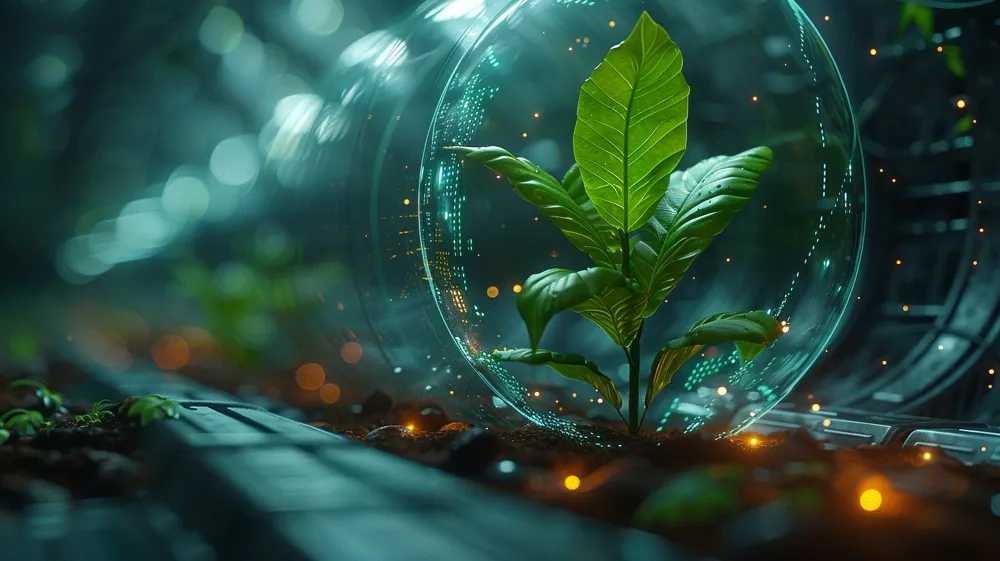Biotechnology is a dynamic and rapidly evolving field that stands at the crossroads of science and innovation, offering revolutionary solutions across various sectors. By harnessing the power of biological systems, biotechnology is transforming healthcare, agriculture, and environmental management. This blog post explores how biotechnology is shaping the future, the key advancements driving its growth, and the broader implications for society.
The Concept of Biotechnology
Biotechnology involves the use of biological organisms, systems, and processes to develop new technologies and products that address human needs and challenges. The field blends biology with technology to create solutions that improve our quality of life and environmental sustainability. Modern biotechnology encompasses a range of techniques, including genetic engineering, molecular biology, and systems biology, each contributing to groundbreaking advancements in multiple areas.
Historically, biotechnology has been rooted in traditional practices such as fermentation and selective breeding. However, the advent of genetic engineering in the 20th century marked a significant leap forward, allowing scientists to manipulate genetic material with unprecedented precision. This evolution has led to a deeper understanding of biological systems and the ability to develop sophisticated technologies that have far-reaching implications.
Revolutionizing Healthcare
One of the most impactful applications of biotechnology is in the healthcare sector. The development of biopharmaceuticals, including vaccines, monoclonal antibodies, and gene therapies, has revolutionized the treatment and prevention of diseases. Biopharmaceuticals are produced using living cells and offer targeted treatments for complex conditions such as cancer, autoimmune diseases, and viral infections.
In recent years, biotechnology has made significant strides in the area of personalized medicine. By analyzing an individual’s genetic makeup, healthcare providers can tailor treatments to the specific genetic variations that influence a patient’s response to therapy. This approach enhances the effectiveness of treatments and reduces the likelihood of adverse reactions, paving the way for more individualized and precise healthcare.
Another exciting development in medical biotechnology is the use of regenerative medicine. Stem cell research and tissue engineering are creating new possibilities for repairing or replacing damaged tissues and organs. For example, researchers are developing techniques to grow organs in the lab that could one day provide solutions for organ transplantation shortages.
Transforming Agriculture
Biotechnology is also transforming agriculture by addressing challenges related to food security, crop yields, and sustainability. Genetically modified (GM) crops are designed to exhibit traits that improve their resistance to pests, diseases, and environmental stresses. For instance, Bt corn contains a gene from the bacterium Bacillus thuringiensis that makes it resistant to certain insects, leading to reduced pesticide use and higher yields.
Biotechnology is also contributing to the development of crops with enhanced nutritional profiles. Biofortification involves modifying crops to increase their levels of essential nutrients, such as vitamins and minerals. Golden Rice, which is engineered to produce higher levels of vitamin A, aims to combat vitamin A deficiency, a major public health issue in many developing countries.
Sustainable agriculture is another area where biotechnology is making an impact. Techniques such as precision agriculture use biotechnology to optimize the use of resources like water, fertilizers, and pesticides. By leveraging data and advanced technologies, precision agriculture aims to enhance crop productivity while minimizing environmental impact.
Advancing Environmental Solutions
Environmental biotechnology focuses on using biological processes to address environmental challenges and promote sustainability. One key application is bioremediation, which uses microorganisms to clean up contaminated environments, such as oil spills or hazardous waste sites. These microorganisms can break down pollutants into less harmful substances, aiding in the restoration of ecosystems.
Biotechnology is also driving the development of renewable energy sources, such as biofuels. Biofuels are produced from organic materials like plant biomass or algae and offer a sustainable alternative to fossil fuels. They help reduce greenhouse gas emissions and dependence on non-renewable resources, contributing to global efforts to combat climate change.
Additionally, biotechnology is contributing to the creation of biodegradable materials, such as bioplastics, which can be broken down by natural processes. Bioplastics offer an environmentally friendly alternative to conventional plastics and help address the issue of plastic waste.
Looking Ahead: The Future of Biotechnology
The future of biotechnology holds tremendous promise and potential. Emerging fields such as synthetic biology, which involves designing and constructing new biological systems, are expanding the boundaries of what biotechnology can achieve. Synthetic biology has the potential to create novel organisms and materials with unique properties, offering new solutions to complex problems.
Artificial intelligence (AI) and machine learning are also poised to enhance biotechnological research and applications. By analyzing vast amounts of biological data, AI can identify patterns, predict outcomes, and accelerate the development of new technologies. This synergy between biotechnology and AI is expected to drive further innovation and discovery.
However, as biotechnology advances, it is important to address ethical and societal considerations. Issues such as genetic privacy, the potential impact of GMOs on ecosystems, and equitable access to biotechnological innovations must be carefully managed to ensure that the benefits of biotechnology are shared broadly and responsibly.
Conclusion
Biotechnology is shaping tomorrow through its innovative applications in healthcare, agriculture, and environmental management. By harnessing the power of biological systems, biotechnology is providing solutions that address critical challenges and offer new opportunities for the future. As we continue to explore the potential of biotechnology, it is essential to navigate the ethical and societal implications to ensure that these advancements contribute to a better, more sustainable world for all.





















